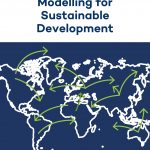
Political Will: What It Is, Why It Matters for Extractives and How on Earth Do You Find It?
By Heather Marquette
February 12, 2020

By Heather Marquette
February 12, 2020
At the request of the Colombian Government and with the support of GIZ, CCSI prepared a policy brief focused on linkages from the mining sector in Colombia. The brief gives an overview of existing regulatory requirements, government policies and company programs to foster economic and infrastructure linkages. Based on the findings, the brief provides suggestions… read more
November 2019
Actors working on supporting progress on the governance of extractive industries (GEI field) have long understood the importance of political context in determining outcomes from EI and from interventions designed to improve these. Much less clear has been how to systematically integrate political concerns – related to power, interests/incentives and political systems – into this work.
Legal frameworks, and how they interact, are often invisible in the day to day. Yet they are powerful forces that influence government actions and that help to shape who benefits and who loses from foreign investment. Understanding these legal frameworks, and how they interact, is critical for anyone concerned with how foreign investment can be… read more
CCSI has long advocated in its trainings and advisory work for governments to perform due diligence on prospective investors. However, little guidance exists for governments on how to decide what level of due diligence is necessary, how to perform basic checks, and when to engage with third parties. CCSI has teamed up with Kroll to help fill this information gap with this guidance document.
By Cynthia Sanborn and Weijun Xie
February 21 – March 9, 2019
Cynthia Sanborn, of the Universidad del Pacífico in Lima, Peru, recently interviewed Weijun Xie, Vice President of China Minmetals Rare Earth Co., Ltd, and a fellow member of the Executive Session on the Politics of Extractive Industries, about the rising prominence of Chinese companies in the world extractive industry. Their conversation addresses the larger political concerns for Chinese investors as they enter into an investment world historically dominated by European and American companies. It also addresses the on-the-ground political challenges of effective communication, transparency and consultation that affect all extractive industry investments, but particularly new and growing enterprises such as those coming out of China.

By Nicola Woodroffe, Perrine Toledano and Jeff Geipel
August 14, 2019
Extractive projects can generate substantial revenues for host countries, and discoveries often bring hopes of jobs, development and newfound wealth. But they also generate a range of negative environmental and social effects, which can have direct and significant economic implications. At the Extractive Industries Transparency Initiative (EITI) global conference in Paris, the Natural Resource Governance Institute (NRGI), the Columbia Center on Sustainable Investment (CCSI) and the Mining Shared Value (MSV) initiative of Engineers Without Borders held an event that delved into how we can better measure, value and report on the non-fiscal impacts of extraction, alongside fiscal impacts.

By Paolo Natali, Suzanne Greene, and Perrine Toledano
August 14, 2019
The embedded carbon content of any product is largely unknown to the final consumer. Very few consumers are aware of the carbon that has been generated in the production and delivery of products and, as a consequence, virtually nobody takes action to abate these emissions. The MIT Sustainable Supply Chains initiative, Columbia Center for Sustainable Investment, and Rocky Mountain Institute’s Materials initiative have formed a working group to engage minerals producers, end users, investors, and other stakeholders interested in carbon accounting.

(International Institute for Sustainable Development , June 2019). This book outlines how next-generation models need to integrate social and environmental components in government and corporate decision-making. Traditionally, these models have focused on profits and taxes, but to achieve the UN’s Sustainable Development Goals, they need to take a more holistic view. The book builds on… read more
Date: June 3-14, 2019
Location: Columbia University